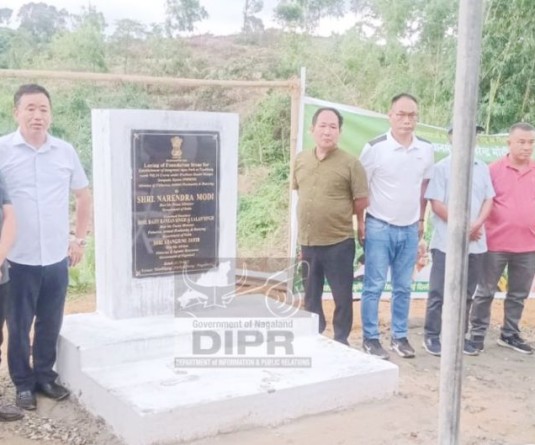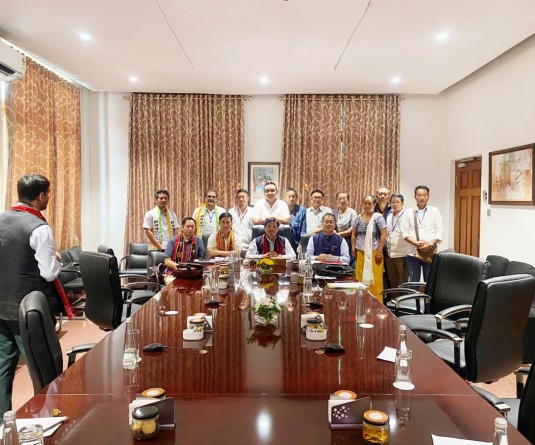Naga women at a candle light vigil in Kohima to mourn the victims of the Oting killings. The incident is a reminder of the human rights violations which have been perpetrated under AFSPA. (Photo Courtesy: Zhazho Miachieo)
 Edited.jpg)
Morung Express News
Kohima | December 9
Citing the Oting killings in Mon as “a glaring example of how the society, the ruling class and the government, have treated us always, although they speak good things about our people and promise big things”, Neingulo Krome, Secretary General of the Naga People’s Movement for Human Rights (NPMHR) regretted the way Nagas and ‘struggling people’ have been treated as second class people, in reality.
Speaking to The Morung Express on the eve of International Day for Human Rights, he said that despite the UN declaration of this day, “the real spirit of involving human rights on people, especially the struggling people, has never been given the due attention.” In a way, he said, “even the United Nations is playing with the lives of especially the struggling people—the indigenous people. So, this is a very big disappointment.”
Nagaland, he said, has been struggling for about seven decades, adding that despite the peace, “when you talk about human rights and the value of the Naga people, it seems to be meaningless when we compare it to other people.”
“We need to articulate this spirit of human rights into action,” Krome said. He stated that “even if people go and start taking control of their own lives, in their own ways, in the best way they know how, to protect their own dignity, the government or the society should not hold us responsible for those actions.”
Human rights activist-cum-academician, Kekhrie Yhome also urged that “human rights protocol needs to be put into place with international practices and the mechanism as well as the system of human rights on equitable terms with democratic norms.”
Voicing out against discrimination or incrimination on regional basis, he said that laws like the Armed Forces Special Powers Act (AFSPA) need to be reviewed.” “Instead of engaging our defense forces in border areas where we see outright challenges, we are using them to police our citizens,” he pointed out.
Yhome said that priorities need to be reviewed and that the “nestling of armed forces in the middle of urban areas should also be reviewed by the Ministry of Home Affairs and Defence.”
‘Set up Nagaland State Human Rights Commission at the earliest’
On January 4, 2016, the State Government had notified the setting up of the Nagaland State Human Rights Commission to be headed by a chairperson who has been a Chief Justice of a High Court, one member who has been judge of a High Court, and another member from amongst persons having knowledge of, or practical experience in matters relating to human rights. It also called for appointment of a Secretary, who shall be the Chief Executive Officer of the State Commission (in the rank of Joint Secretary).
This so far has not happened, and the Nagaland Voluntary Consumers’ Organisation (NVCO) in April this year, stated that it is “unconstitutional and amounts to negligence.”
On the eve of International Day for Human Rights, Akavi N Zhimomi, President of the Nagaland State Board, International Human Rights Council appealed to the State Government to constitute a State Human Rights Commission at the earliest. “The public from each and every corner of Nagaland should start demanding for it”, he said.
He remarked that the Oting incident “should open our eyes.” “It is the right time for our younger generations to utilize that energy after the incident, to start researching ourselves about human rights violation in the context of international, national, regional as well as in the state level,” he said. “When every one of us can take up the role and responsibility that we need to educate the public, the society, the GBs, religious leaders…that can create an impact,” he added.
“Human rights violation does not only mean Indian Army coming and shooting the civilians but we have so many human rights violation where we, the public are not getting the right to education, right to proper food, right to health, etc,” Zhimomi said. He added that every individual needs to play a role in fighting for human rights, starting from the grassroots. He further stated that whether it be the security forces or Naga political groups, “when they are not well aware of human rights violations,” it will affect human principles and hinder progress of society.





